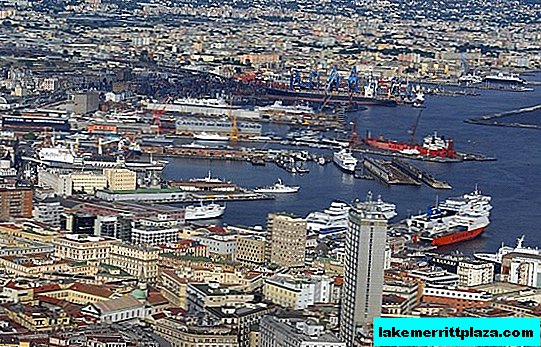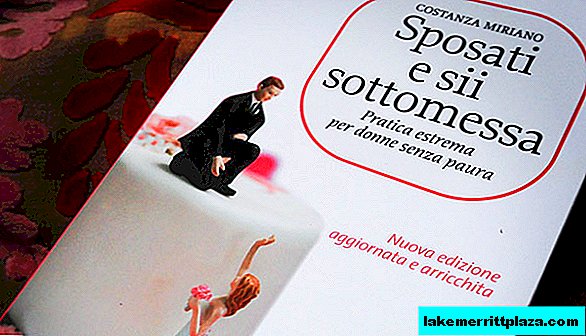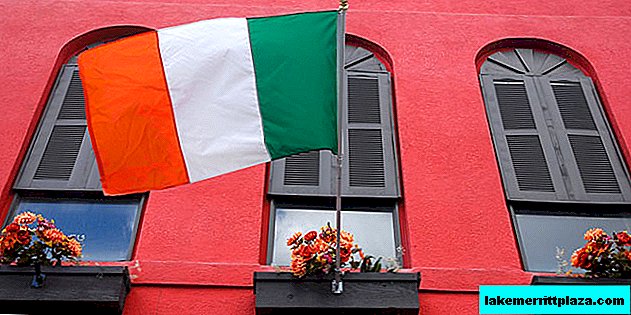Beautiful Sicily reveals its secrets. On the largest island of the Aegadian archipelago of Favignan opened the Museum of Tuna. Now tourists will be able to find out what many generations of local residents have dedicated themselves to and how the legendary Mattan took place.
The sea at Favignana is always crystal clear. No wonder the red bay (Cala Rossa), located on the island, is among the ten best beaches in Italy. Even near the port, where at dawn and at sunset the fishermen’s boats are filled with red beards, spiny lobsters, squid, mullet and sea bass. As soon as a tourist leaves the ferry on the shore of the largest of the three islands of the Egadi archipelago (there is also Levanzo and Marettimo), the first word that catches his eye and ears is “tuna”. Here is the “Tuna House”, “Tuna Gastronomy”, “Tuna 2011" and a bar serving a tuna-based aperitif. However, industrial fishing for tuna, which has fed local residents for several centuries, has been discontinued for seven years.

Rebuilt today into a beautiful museum, Tonnara Florio (Tuna Fishery and Processing Factory, Tonnara Florio) was once the most modern and successful tuna processing company in all of southern Italy. It was built in the mid-19th century on the initiative of Senator Ignazio Florio, who came from a family of respected Sicilian entrepreneurs. In his new factory, Ignazio was able to organize a work cycle involving several hundred people. He not only attracted almost all the inhabitants of the island to tuna fishing - with him this occupation became a tradition and became part of the local folklore.

The tuna fishing process is called Mattanza: from the Spanish word "mactare", which means "kill." Every day, fishermen entered into a fierce struggle, often one on one, with marine inhabitants. Mattanza has incorporated the features of a collective ritual, implying the involvement of the entire population in the work and penetration into ritual songs asking for favors or protecting from the evil eye. Mattanza preached social unity as a basis for survival: in order to live, people need to unite in groups and establish social ties.
Catching tuna involves careful preparation: many different specially equipped boats and barges went fishing immediately, and each performed its task. Dozens of anchors, hundreds of meters of networks, countless people, each of whom has his own role in a well-staged and thoughtful performance.

Mattanza is not just hunting, but catching fish using clever tactics and strategies. Catching tuna is based not only on the experience and talent of the fisherman, accuracy is also important in enforcing the mechanism of death. To do this, a kind of maze was built from nets stretched into the sea, along which unsuspecting fish had to swim until it reached a place from which it could no longer escape - the so-called death chamber.

Mattanza was necessarily preceded by rituals and songs, appeasing the gods and asking for their mercy. The person who directly addresses the gods and is responsible for the planning and coordination of the Mattanians was called "rais" (rais). This was the head of the entire event, which controlled the entire process from start to finish. There was something legendary and grandiose in Mattan, which was breathtaking, and all participants in the fierce battle became heroes outside of life and death. And all this related to the traditional Mattanian, described back in the Odyssey and dating back to the practice of the ancient Phoenicians and Arabs.

The last real Mattan was held in 2007. Among many factors, a decrease in the number of fish also affected: Japanese fishermen caught tuna in the Atlantic Ocean, and he did not have time to get to the Mediterranean Sea. For a while, Favignan still held "demonstrations" for tourists, but in 2009 they also stopped. However, in August 2013, the so-called Tuna Museum (officially "Ex Stabilimento Florio a Favignana") was opened in Tonnara Flavio after reconstruction.
Museum opening hours: daily from 10.15 to 13.15 and from 16.15 to 19.15.
Entrance fee: 4 euros, for persons over 65 years old free of charge.
Guided tours are free in Italian.
Excursion time: 10.30 / 11.15 / 12.00 / 16.15 / 17.30








